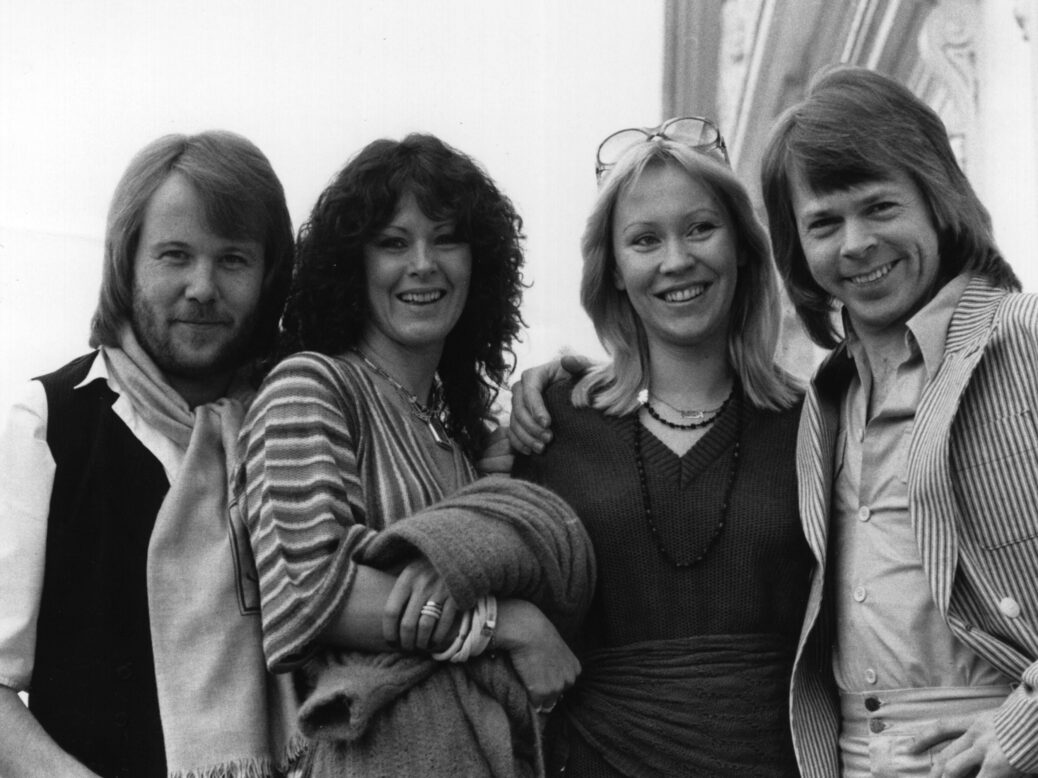
After winning the Eurovision Song Contest with “Waterloo” in 1974 – the first Swedish contestants to do so – Abba became famous almost overnight. But it wasn’t until a few years later that they became true superstars. By the time they released “The Album” in December 1977, Abba were fresh off a tour of Europe and Australia, with multiple number-one hits and a movie on the way. They were universally accessible: their Eurovision entry was unique because they sang in English rather than their native Swedish. In this review of that record, Mark Kidel writes that Abba “might as well come from any town in the world with a hamburger joint and a Holiday Inn”. Kidel is wary of Abba’s universal success – their shiny, joyous accessibility represents a kind of mass-media flattening of culture. And yet he cannot help but recognise Abba’s irresistible hooks, “flawless production” and songs that “glitter with cleverness and charm”. “They have elevated the middle of the road to a cult,” he writes, “and there is no doubt that they do it with consummate panache.”
***
Abba’s sweet million-selling music, like Sweden’s other successful export, the Volvo, is smooth, well-made and so safety-conscious that it hardly has any edge or character at all. Abba’s wholesome foursome, with their high street-styled hairdos (a far cry from punk sedition) and healthy outdoor smiles, were the winners of the Eurovision Song Contest a few years ago, with “Waterloo”, and they have been churning out Euro-packed hits and raking in the currency ever since. Backed by their eminence grise and chief hustler Stig Anderson, they set out to conquer the world; with their new album a certified platinum success weeks before release, and equal promise for a film opening in the West End (and the rest of the universe) next month, it looks as though the campaign has paid off.
Abba provide ideal family entertainment, a reassuring antidote to the creeping decadence of rock, but never without taste, and always presented in the finest musical wrapping. They produce perfect fodder for Top-40 radio: insistent melodies that quickly get hooked inside the most resilient brain, simple lyrics that hover carefully on the edge of bubblegum inanity. There is, however, nothing second-rate about their music: even to sophisticated or purist rock ’n’ roll ears, it has an irresistible quality which is derived from accessibility and flawless production.
The group pillage just about every style thrown up in two decades of rock history, with echoes of all the mass-appeal hit-makers, from the Beatles and the Beach Boys to the Mamas and the Papas and the Supremes. Like all great pop artists, they cover their track well, synthesising their many sources of inspiration with clear instinctive skill. They rock – or more often bounce, with a good deal less eroticism – softly, with all the decorum of a U movie.
The electric guitars – preserved in lip-service to the genre – are usually smothered beneath layers of synthesised strings or multi-tracked vocals. They have elevated the middle of the road to a cult, and there is no doubt that they do it with consummate panache.
The full weep of Abba’s abilities is well illustrated on “The Name of The Game”, their most recent hit included on the album, a dramatically constructed song with distinct movements and mood changes and an interesting range of sound textures. It is music which has a strong surface attraction: it glitters with cleverness and charm, qualities which are bound to satisfy consumers and, more important, keep them asking for more. Abba’s hits – perhap less like the Volvo, this time – come with their own built-in obsolescence.
Abba also sell million of records because they communicate such a strong feeling of carefree joy and boundless hope, no matter what they are singing about. Their specialty is the Abba oompah, a wall-to-wall embrace full of exaggerated echo (as in all the classics from the Beach Boys and Phil Spector). Songs like “Eagle” and “One Man One Woman” are about sunsets on a golden horizon and escaping to the promised land, but it is hardly a new world with much reality. It has nothing to do with the peace-and-love utopia of the Sixties: it is a manufactured hint of heaven, to be consumed along with the disposable song, and never truly lived. Abba offer the gleam of an endless sunny day to all those trapped in the concrete jungle.
They are so good at making muzak that their songs have grown into the background music of the Coca-Cola culture. The group are Swedish, and the records are made in Sweden, but they might as well come from any town in the world with a hamburger joint and a Holiday Inn. With their multinational pop, they are a guarantee against culture hock, a comfort to jet-age execs and travelling salesmen. When Abba sing in “Move On”, a hymn to travel, that “life is motion” they run into an uncomfortable paradox: the age of the jumbo-jet holiday (and think of all those packaged Scandinavians pouring into West Africa) may provide a seemingly endless supply of new horizons, but it is the successful marketings of bands like Abba which is helping to erode further the remains of local cultures. If Abba continue to make homogenised hits at the rate they are doing today, there just may not be any fresh vista left for any of us to dream about.
Read more from the NS archive here and sign up to the weekly “From the archive” newsletter here. A selection of pieces spanning the New Statesman’s history has recently been published as “Statesmanship” (Weidenfeld & Nicolson)






